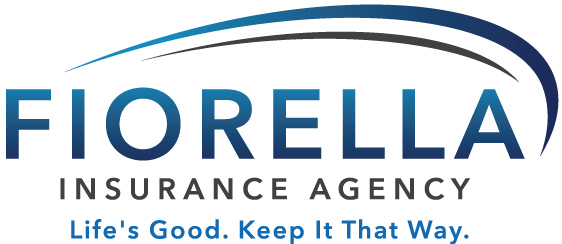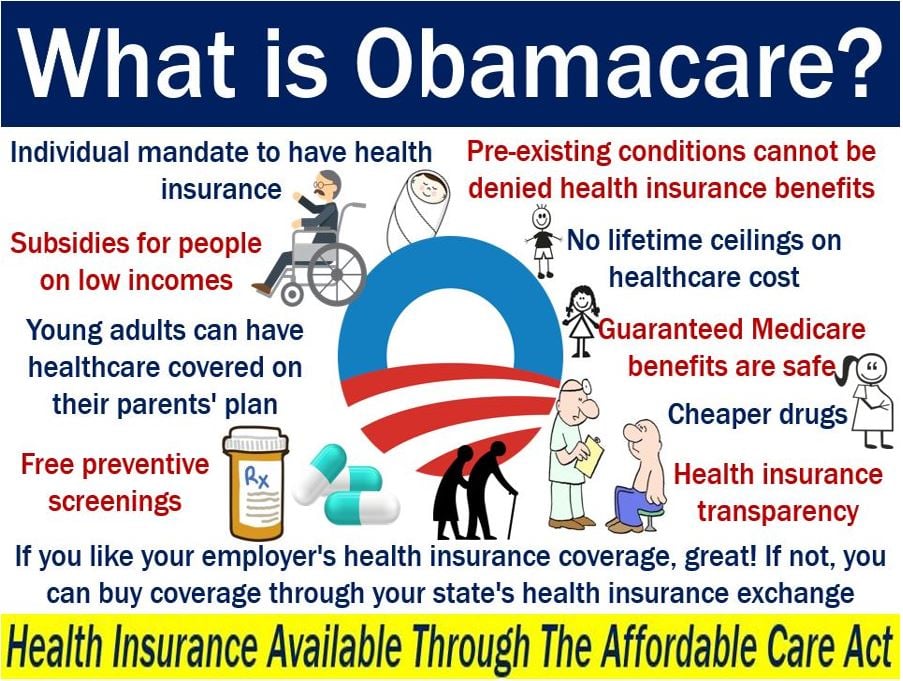Why was Obamacare created? This is a question that many Americans continue to ask as they navigate the complexities of the Affordable Care Act (ACA). In this blog post, we will examine why was Obamacare created and its resulting effects, such as Scott Brown’s special election in Massachusetts and incentives for small businesses.
Furthermore, we will discuss important aspects of the ACA like Health Insurance Exchanges, and the legal challenges it has faced over time. As we examine why was Obamacare created, you’ll learn about significant benefits emerging from these policies – including prohibitions against raising premiums based on preexisting conditions and extended coverage up until age twenty-six.
In addition, recent changes impacting ACA benefits will be addressed along with how Obamacare aims to address inequities within America’s healthcare system by expanding access to services and improving affordability among different demographics.
Table of Contents
- Why was Obamacare Created?
- The Development of Obamacare
- Small Business Tax Credits
- Pre-existing Condition Insurance Plan (PCIP)
- Key Benefits of Obamacare Policies
- Medicare Part D Discounts & State Work Requirements Implementation
- The Impact of Obamacare on Health Insurance Coverage
- Conclusion
Why was Obamacare Created?
What is the reason why was Obamacare created? Obamacare, or the Affordable Care Act (ACA), was created to address the issues of rising healthcare costs and limited access to health insurance for millions of Americans. The ACA aimed at expanding coverage, improving affordability and quality, and reducing disparities in America’s healthcare system.
The Development of Obamacare
One significant milestone in why was Obamacare created occurred in 2010 when Scott Brown won a special election in Massachusetts. This event led to small businesses qualifying for tax credits and the creation of the Pre-Existing Condition Insurance Plan (PCIP).
Small Business Tax Credits
Under Obamacare, eligible small businesses can receive tax credits to help cover their employees’ health insurance costs. These incentives make it more affordable for small business owners to provide comprehensive health coverage for their workforce, ultimately contributing to better overall public health and employee satisfaction.
Pre-existing Condition Insurance Plan (PCIP)
Another reason why was Obamacare created is prior to its implementation, individuals with pre-existing conditions had few affordable options for health insurance. The ACA introduced the Pre-existing Condition Insurance Plan (PCIP), which provided temporary coverage options until broader protections under Obamacare took effect. This program ensured that those with chronic illnesses or disabilities could access essential healthcare services without facing exorbitant premiums or outright denial from insurers.
As we continue through open enrollment periods and witness ongoing changes within our healthcare system, it is essential to stay informed about how these policies impact individuals’ ability to obtain necessary preventive care services and maintain overall well-being.
Key Benefits of Obamacare Policies
Since its implementation in 2014, several key benefits have emerged from Obamacare’s policies, making health insurance more accessible and affordable for millions of Americans. Some of the most notable changes include:
- Extension of coverage under parental plans till age twenty-six: Under the ACA, young adults can now remain covered under their parents’ health insurance plans until they reach the age of 26. This provision has helped many college students and recent graduates maintain access to healthcare while transitioning into independent living or pursuing higher education.
- Supporting small businesses through tax credits & incentives: The ACA provides financial assistance to eligible small businesses that offer health coverage to their employees through the Small Business Health Options Program (SHOP). These tax credits help offset premium costs, making it easier for employers to provide quality, affordable health insurance options even for those with preexisting medical issues.
Additionally, it offers free preventive care services like screenings, vaccinations, and counseling while expanding Medicaid eligibility in certain states. Furthermore, Obamacare has closed the Medicare Part D “donut hole”, which used to leave seniors responsible for a significant portion of prescription drug costs.
The ACA also established essential health benefits that all individual market plans must cover. These ten categories range from hospitalization and maternity care to mental health services and prescription medications. As a result, consumers can now expect comprehensive coverage when they buy health insurance during open enrollment periods.
Obamacare has had a considerable effect on the US healthcare landscape, offering improved access to reasonably priced care for numerous Americans. Despite ongoing challenges and potential changes to the law in the future, many families and individuals continue to benefit from its provisions today.
Medicare Part D Discounts & State Work Requirements Implementation
One of the significant benefits that emerged from the ACA, also known as Obamacare, is the introduction of discounts on prescription drugs for Medicare Part D recipients. Since its introduction a decade ago, Medicare Part D recipients can now benefit from reduced prices on brand-name prescriptions of up to 50%, and generic medications at 7%. These discounts have provided much-needed financial relief to millions of seniors who rely heavily on these medications for their health and well-being.
Discounts on Brand-Name Prescription Drugs
The ACA has enabled Medicare Part D participants to access necessary brand-name medications at greatly diminished prices, thereby reducing the financial burden for elderly individuals and ensuring they receive appropriate treatments to maintain their health or manage chronic conditions. This provision helps lower out-of-pocket costs for seniors while ensuring they receive the necessary treatments to manage chronic conditions or maintain overall health.
Discounts on Generic Medications
In addition to brand-name drug discounts, Obamacare also offers savings on generic medications. With a 7% reduction in cost, this initiative further supports senior citizens in managing their healthcare expenses more effectively without compromising their access to vital medicines.
State-Implemented Work Requirements
Beyond Medicare Part D improvements, another aspect of Obamacare involves allowing states to implement work requirements within their Medicaid programs. The Centers for Medicare & Medicaid Services (CMS) granted states the flexibility to introduce these requirements in the early years following ACA implementation. As a result, some states have chosen to enforce work or community engagement stipulations for Medicaid beneficiaries as a condition of eligibility.
While this policy aims to encourage self-sufficiency and personal responsibility among recipients, it has also faced criticism from those who argue that it may reduce access to healthcare services for vulnerable populations. It is essential for policymakers and stakeholders alike to monitor the impact of such work requirements on overall health outcomes and coverage rates within their respective communities.
Medicare Part D Discounts and State Work Requirements Implementation have provided increased access to healthcare for many individuals, but there are still challenges that must be addressed in order to ensure everyone has equal access. The Impact of Obamacare on Health Insurance Coverage looks at how the implementation of this law affected health insurance coverage across the nation.
The Impact of Obamacare on Health Insurance Coverage
One significant outcome of Obamacare was the increase in the number of individuals with health insurance coverage. The implementation of this comprehensive health reform led to millions more Americans gaining access to affordable and quality healthcare services.
Increase in Insured Individuals Post-Obamacare Implementation
After its enactment, there was a substantial rise in insured individuals across various age groups and income levels. According to data from the U.S. Census Bureau, between 2010 and 2016, the uninsured rate dropped from 15.5% to 8.6%, which translates into approximately 20 million people obtaining health coverage during that period.
Challenges Faced Due to State-Implemented Work Requirements
However, recent changes have posed challenges for some aspects of Obamacare’s success story. For instance, several states were allowed by Centers for Medicare & Medicaid Services (CMS) to implement work requirements as part of their Medicaid programs after receiving waivers under Section 1115(a) authority granted by CMS in the early years after ACA implementation. These new rules may potentially reduce eligibility among certain populations who are unable or unwilling to meet these requirements due to factors such as disability or caregiving responsibilities.
A decline in Overall Insured Population
- Erosion of Benefits: Some critics argue that allowing states greater flexibility over their Medicaid programs has led to an erosion of the benefits provided by Obamacare. This includes increased premiums, reduced coverage options, and even a decline in the overall insured population.
- Repeal Attempts: There have been numerous attempts by Congress to repeal or replace the ACA since its inception. In spite of the numerous unsuccessful attempts to abolish or modify the ACA, this still leaves many Americans in a state of apprehension about their health insurance prospects.
In light of these challenges, it is essential for families and individuals seeking health coverage through Obamacare to stay informed about any changes that may affect their access to affordable care. Additionally, open enrollment periods provide opportunities for those without insurance or looking for better plans to buy health insurance and secure preventive services at no additional cost as mandated under ACA provisions such as Medicare Part and Small Business Health Options Program (SHOP).
Conclusion
The reason why was Obamacare created is to offer more accessible and economical health insurance for families and individuals. The ACA has brought about many key benefits, such as prohibiting raising premiums based on preexisting conditions, extending coverage up until age twenty-six, tax credits and incentives for small businesses, and discounts available through Medicare Part D programs. However, recent changes have impacted the benefits of the ACA with the implementation of work requirements leading to a decline in overall health insurance coverage.




